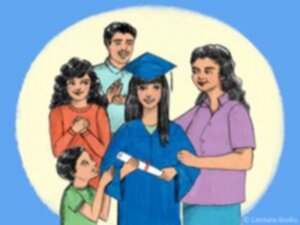
Hispanics make up the single largest population of immigrants currently living in the United States, with a majority of that group aged 25-62 born outside of the United States. A new public education system can be tough to navigate and newcomers are often at a disadvantage when compared to their U.S born peers of both Hispanic and non-Hispanic descent. From a young age, many Hispanic children who come to the U.S. are up against a number of obstacles that can prove challenging, the first of which being the language barrier.
The age of a child coming to this country also plays a signficant role in that child dropping out of school, as 33% of immigrant youths who arrive here when they are older are four times more likely to abandon their schooling. The average age of a child immigrating to this country is nine years old. Being tasked to learn a new language at that age can be daunting and though many are enrolled in bilingual courses, they might still struggle to keep up with rest of the class for several years.
There are other pressing matters that interfere with Hispanics and their education. Issues of poverty, lack of academic support resources, the amount of time in the U.S., and racial discrimination play large roles in preventing Hispanic children from developing their academic skills successfully. As they age, these barriers can become increased as Hispanic students have to deal with the additional social pressures that can come with these aforementioned impediments and the risks for failure in reaching their educational goals are multiplied. Students can start to develop bad social habits, experience diminished self-esteem, and even fall into depression.
For schools, it might seem like a challenge to reach out to parents of ELL students if the parents speak Spanish. The Latino Family Literacy Project can train school staff to work with parents to increase the parent involvement efforts at their school with Hispanic parents. The online webinar provides teachers with a cultural competency training and a step-by-step curriculum for a proven successful model for family engagement.
